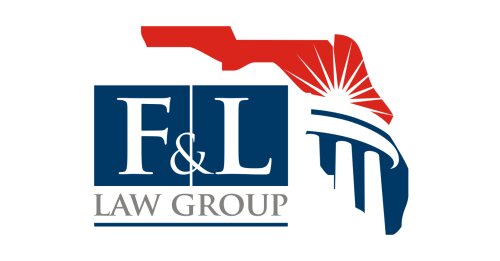Best Antitrust Litigation Lawyers in Naples
Share your needs with us, get contacted by law firms.
Free. Takes 2 min.
List of the best lawyers in Naples, United States
About Antitrust Litigation Law in Naples, United States
Antitrust litigation focuses on resolving disputes related to unfair business practices that restrict competition and harm consumers or other businesses. In Naples, United States, antitrust laws are designed to maintain fair competition among businesses, prevent monopolies, and prohibit unlawful restraints of trade such as price-fixing, market allocation, and bid-rigging. Both federal and Florida state laws govern antitrust conduct, and violations can lead to significant civil or criminal penalties. Whether involving price manipulation, exclusive contracts, or mergers that could inhibit competition, antitrust litigation aims to protect consumers and ensure a robust, competitive marketplace.
Why You May Need a Lawyer
Antitrust issues can be highly complex and carry serious legal and financial consequences. Common situations requiring legal assistance include allegations of price-fixing, group boycotts, predatory pricing, merger and acquisition concerns, exclusive dealing or supply arrangements, and market allocation agreements. If your business is being investigated by regulatory authorities, is subject to a lawsuit alleging anticompetitive conduct, or if you believe another business is violating antitrust laws to your detriment, consulting a lawyer is crucial. Legal professionals help negotiate with regulators, build your defense, and guide your business practices to ensure compliance.
Local Laws Overview
Naples falls under both federal and Florida state antitrust laws. Federal statutes include the Sherman Act, Clayton Act, and Federal Trade Commission Act, which prohibit various forms of anticompetitive conduct and unfair trade practices. Florida's own antitrust laws, primarily found in the Florida Antitrust Act of 1980, align closely with these federal statutes but provide additional remedies and are enforced by the Florida Attorney General. These laws apply to individuals and businesses operating within Florida, ensuring that local commerce remains open and competitive. Both federal and state authorities can bring lawsuits, and private parties harmed by anticompetitive behavior may seek damages and injunctions in court.
Frequently Asked Questions
What types of business practices can lead to antitrust litigation?
Common practices include price-fixing, bid-rigging, monopolistic behavior, exclusive dealing, tying arrangements, and market allocation agreements that unfairly restrict trade or harm competitors.
Who can file an antitrust lawsuit in Naples?
Antitrust lawsuits can be filed by federal or state governments, as well as by private individuals or businesses directly harmed by anticompetitive conduct.
Are antitrust laws enforced at the state or federal level?
Both levels enforce antitrust laws. The Department of Justice (DOJ), Federal Trade Commission (FTC), and Florida Attorney General all oversee enforcement, depending on the case specifics.
Can I report suspected antitrust violations?
Yes. Individuals or businesses can report suspected violations to the DOJ, FTC, or the Florida Attorney General's Office. Legal counsel can help guide you through this process.
What penalties can result from violating antitrust laws?
Penalties may include substantial fines, injunctions to stop unlawful activities, damages for harmed parties, and in some cases, criminal charges leading to imprisonment.
How long do I have to file an antitrust lawsuit?
The statute of limitations varies but is generally four years from the time the violation was discovered. Consulting an attorney promptly is important to preserve your rights.
Are there defenses against antitrust claims?
Yes. Common defenses include lack of intent to restrict competition, legitimate business justifications, and compliance with regulatory requirements. An attorney will tailor defenses to your specific situation.
Can small businesses be involved in antitrust litigation?
Yes. Both large and small businesses can be parties to antitrust litigation, whether as plaintiffs seeking redress for unfair practices or as defendants facing accusations.
What role does the Florida Antitrust Act play?
The Florida Antitrust Act closely mirrors federal antitrust laws but provides additional remedies and local enforcement. It applies to trade and commerce within Florida, affecting Naples-based businesses.
How can an antitrust lawyer help my business?
An antitrust lawyer provides essential services such as regulatory compliance advice, internal investigations, risk mitigation strategies, litigation defense, and negotiation with authorities or opposing parties.
Additional Resources
- United States Department of Justice Antitrust Division - Federal Trade Commission Bureau of Competition - Office of the Florida Attorney General - Antitrust Section - Collier County Bar Association for referrals to local Naples attorneys specializing in antitrust law - Legal aid clinics and law libraries in Naples for further educational materials
Next Steps
If you believe you are facing an antitrust issue or need guidance, begin by collecting all relevant documents and correspondence. Schedule a consultation with a qualified antitrust litigation attorney based in Naples to discuss your situation. During this initial meeting, share all facts openly and ask about your options, likely outcomes, and strategies moving forward. If litigation or regulatory action is anticipated, your lawyer can help you develop a proactive plan. Staying informed, seeking timely legal help, and understanding both your rights and obligations under the law are critical steps to resolving your antitrust concerns effectively.
Lawzana helps you find the best lawyers and law firms in Naples through a curated and pre-screened list of qualified legal professionals. Our platform offers rankings and detailed profiles of attorneys and law firms, allowing you to compare based on practice areas, including Antitrust Litigation, experience, and client feedback.
Each profile includes a description of the firm's areas of practice, client reviews, team members and partners, year of establishment, spoken languages, office locations, contact information, social media presence, and any published articles or resources. Most firms on our platform speak English and are experienced in both local and international legal matters.
Get a quote from top-rated law firms in Naples, United States — quickly, securely, and without unnecessary hassle.
Disclaimer:
The information provided on this page is for general informational purposes only and does not constitute legal advice. While we strive to ensure the accuracy and relevance of the content, legal information may change over time, and interpretations of the law can vary. You should always consult with a qualified legal professional for advice specific to your situation.
We disclaim all liability for actions taken or not taken based on the content of this page. If you believe any information is incorrect or outdated, please contact us, and we will review and update it where appropriate.









